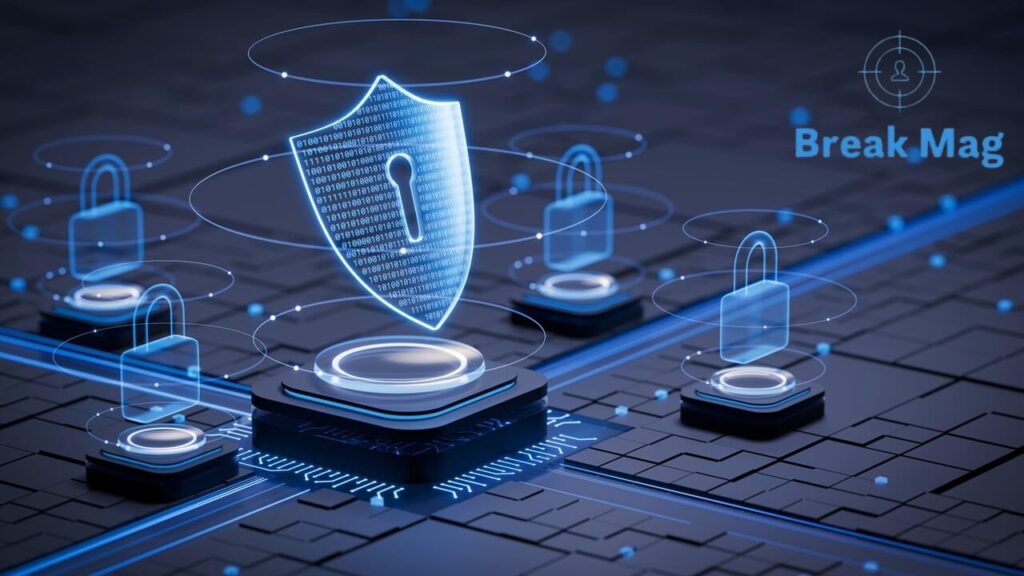
In an age where nearly everything is online, cybersecurity is no longer optional—it’s essential. From personal data to financial transactions, every click can be a potential threat if not properly secured. This guide breaks down what cybersecurity is, why it matters, and how you can stay protected in 2025.
What Is Cybersecurity
Cybersecurity refers to the practice of protecting systems, networks, and programs from digital attacks. These attacks often aim to access, change, or destroy sensitive data, extort money, or disrupt normal business operations.
Why Is Cybersecurity Important?
With growing digital transformation across all industries, cyber threats have become more advanced. Cybersecurity protects:
- Personal data like passwords and bank details
- Business networks and customer information
- Government systems and national security infrastructure
- Medical and financial records
Without proper protection, you risk identity theft, data breaches, and financial loss.
Types of Cyber Threats in 2025
1. Phishing Attacks
Fraudulent emails or messages trick users into giving up sensitive information.
2. Ransomware
Malicious software locks your files until a ransom is paid.
3. Malware
Viruses, worms, and spyware that damage or steal data.
4. Zero-Day Exploits
Attacks on vulnerabilities before they’re patched.
5. DDoS Attacks
Floods a server with traffic to shut down websites or services.
6. Social Engineering
Manipulating individuals into revealing confidential data.
Key Elements of Cybersecurity
1. Network Security
Protects internal networks from intrusions using firewalls, VPNs, and intrusion detection systems.
2. Information Security
Safeguards data from unauthorized access and corruption.
3. Endpoint Security
Secures devices like computers, phones, and tablets connected to the network.
4. Cloud Security
Protects data stored in cloud environments from breaches and leaks.
5. Identity and Access Management (IAM)
Controls who can access what resources within an organization.
Best Practices for Cybersecurity in 2025
- Use strong, unique passwords for each account
- Enable two-factor authentication (2FA)
- Update software and devices regularly
- Avoid suspicious links and attachments
- Use a secure Wi-Fi network
- Install reliable antivirus and firewall software
- Back up important data regularly
- Limit sharing personal information online
Cybersecurity for Businesses
Companies must build a cybersecurity strategy to protect customer data, internal systems, and digital assets. This includes:
- Employee training
- Security audits
- Disaster recovery plans
- Data encryption
- Third-party risk management
A single breach can cost millions in losses and reputational damage.
Cybersecurity Careers and Certifications
The demand for cybersecurity professionals continues to grow. Popular roles include:
- Cybersecurity Analyst
- Penetration Tester
- Security Engineer
- Chief Information Security Officer (CISO)
Top Certifications:
- CompTIA Security+
- Certified Ethical Hacker (CEH)
- CISSP (Certified Information Systems Security Professional)
- CISA (Certified Information Systems Auditor)
- OSCP (Offensive Security Certified Professional)
Cybersecurity Trends in 2025
1. AI-Powered Security
AI helps detect threats faster and more accurately.
2. Zero Trust Architecture
Never trust, always verify. Every access request is fully authenticated.
3. Quantum-Resistant Encryption
Preparing for the impact of quantum computing on current encryption methods.
4. Cyber Insurance
Growing demand for coverage against losses from cyberattacks.
5. Privacy Regulations
More countries enforcing stricter data protection laws like GDPR.
FAQs
What is the biggest cybersecurity threat today?
Ransomware and phishing remain the top threats in 2025.
Is cybersecurity a good career?
Yes, it’s high-paying, in-demand, and critical to every industry.
Can individuals be targeted?
Absolutely. Anyone using the internet is a potential target.
How often should I update my passwords?
Every 3–6 months, or immediately after a breach.
What is ethical hacking?
Ethical hackers test systems for vulnerabilities before malicious hackers can exploit them.
Final Thoughts
Cybersecurity is your digital armor. Whether you’re an individual or a business, protecting your data is more important than ever. With threats evolving rapidly, staying informed and proactive is the only way to stay safe.







